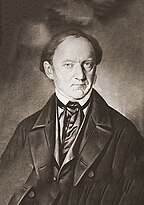
Back Seznam předsedů vlád Lichtenštejnska Czech Liste der Regierungschefs von Liechtenstein German Κατάλογος αρχηγών κυβέρνησης του Λίχτενσταϊν Greek Anexo:Primeros ministros de Liechtenstein Spanish Liechtensteini valitsusjuhtide loend Estonian Zerrenda:Liechtensteingo Lehen Ministroak Basque Luettelo Liechtensteinin pääministereistä Finnish Liste des chefs du gouvernement du Liechtenstein French Liechtenstein miniszterelnökeinek listája Hungarian Daftar kepala pemerintahan Liechtenstein ID
- Top left: Michael Menzinger is considered the first governor of Liechtenstein.
- Top right: Leopold Freiherr von Imhof was governor during World War I.
- Bottom left: Josef Hoop was the longest-serving prime minister and held the office during World War II.
- Bottom right: Daniel Risch is the incumbent prime minister.
The head of government of Liechtenstein (German: Regierungschef von Liechtenstein), known informally as the prime minister, is the chief executive of the Government of Liechtenstein and chairs the cabinet of Liechtenstein. They are appointed by the sovereign prince of Liechtenstein with the consent of the Landtag of Liechtenstein (parliament of Liechtenstein) and are expected to command the confidence of both the prince and the Landtag. The appointed head of government is typically the leader of the political party with the most seats in the Landtag or a coalition of parties. The head of government cannot be a member of the Landtag at the same time, although they should meet the eligibility requirements for that office.[1]
 |
|---|
The position originated as Landvogt in the 16th century. The role functioned as the head of the district office (Oberamt), subordinate to the court of House of Liechtenstein.[2] It was originally an undesired post within the court; this changed after Michael Menzinger applied for the role in 1833.[3] The title was changed to governor (Landesverweser) as a concession following the Revolution of 1848 in Liechtenstein and was formalized upon the ratification of the 1862 constitution of Liechtenstein on 26 September. For this reason, Menzinger is considered the first governor of Liechtenstein.[3][4] In 1921, a new constitution was ratified in which the office was replaced by that of the prime minister.[4][5] Under this constitution, the eligibility for becoming head of government was changed to require being natural-born in Liechtenstein. However, this requirement has been considered inactive since 1992.[1][6]
The incumbent Prime Minister has been Daniel Risch since 25 March 2021.[7] There are currently five living former prime ministers, with Walter Kieber being the most recent death, in 2014.[8]
- ^ a b "Liechtenstein 1921 (rev. 2011)". Constitute. Retrieved 25 October 2024.
- ^ Vogt, Paul (31 December 2011). "Oberamt". Historisches Lexikon des Fürstentums Liechtenstein (in German). Archived from the original on 21 July 2023. Retrieved 29 September 2024.
- ^ a b Burmeister, Karl Heinz (31 December 2011). "Menzinger, Johann Michael". Historisches Lexikon des Fürstentums Liechtenstein (in German). Archived from the original on 25 October 2022. Retrieved 5 July 2024.
- ^ a b Wille, Herbert (31 December 2011). "Verfassung". Historisches Lexikon des Fürstentums Liechtenstein (in German). Archived from the original on 19 July 2023. Retrieved 24 December 2023.
- ^ "Mitglieder der Regierung des Fürstentums Liechtenstein 1862-2021" (PDF). www.regierung.li. Archived (PDF) from the original on 16 February 2024. Retrieved 15 February 2024.
- ^ "Constitution of the Principality of Liechtenstein". European Commission for Democracy through Law (Venice Commission). Strasbourg. 27 November 2002 [5 October 1921]. p. 22. Archived from the original on 11 February 2022. Retrieved 15 February 2024.
- ^ "New Government Sworn In". liechtensteinusa.org. Embassy of the Principality of Liechtenstein in Washington D.C. 26 March 2021. Archived from the original on 11 August 2022. Retrieved 25 July 2022.
- ^ "Alt-Regierungschef Kieber mit 83 gestorben". Liechtensteiner Volksblatt (in German). 23 June 2014. Archived from the original on 12 May 2021. Retrieved 2 November 2023.



